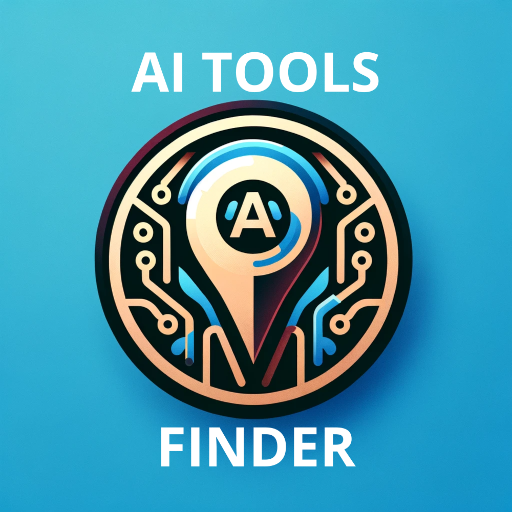Free Legal Advice-legal aid for various cases
AI-powered free legal guidance.
Can you find free legal advice in Texas?
What's the eligibility for legal aid in Scotland?
Where can I find pro bono lawyers in Australia?
How do I access legal services in Canada?
Related Tools
Load More
Персональный Юрист
Russian-speaking legal assistant with donation prompt.

Experto Legal España
Asesor jurídico detallado y profesional en derecho español

Legal Advisor
Answers legal questions in a variety of legal topics.
The French Lawyer
⚖️ Avocat français expert, capable de fournir une assistance réelle et fiable grace à WebPilot: un outil de navigation web avancé, leader dans la fourniture d'analyses juridiques précises et actualisées à usage professionnel dans les cabinets d'avocats.

Conseiller Juridique
Avocat français professionnel et accessible, offrant des conseils juridiques en droit du travail, des affaires et de la famille.

Abogado (Chile)
Asistente legal que actúa como un abogado experto en leyes chilenas
20.0 / 5 (200 votes)
Introduction to Free Legal Advice
Free Legal Advice is a service designed to provide users with access to reliable legal resources and guidance, particularly for those who may not have the financial means to hire a private attorney. Its main purpose is to connect users with appropriate legal aid organizations, pro bono services, and other resources depending on their location, legal issue, and eligibility criteria. It serves as a gateway to legal services offered by organizations like the Legal Services Corporation (LSC) in the US, the ACLU, various law school clinics, and community legal aid centers in the UK, Canada, Ireland, and Australia. For example, a user facing eviction in California could be directed to a local legal aid office funded by the LSC that specializes in housing issues. Similarly, a resident of Scotland looking to contest a government decision on benefits might be guided to a law center specializing in welfare rights.

Main Functions of Free Legal Advice
Providing Connections to Legal Aid Organizations
Example
A tenant in Texas facing an eviction notice may not have the means to afford a lawyer. They use Free Legal Advice to find the nearest Legal Aid of Northwest Texas office, which offers free assistance for housing disputes.
Scenario
An individual needs help with a legal matter but cannot afford a private attorney. Free Legal Advice matches them with local non-profit legal aid organizations, allowing them to access free or low-cost legal services.
Offering Information on Legal Eligibility Criteria
Example
A single mother in Florida is unsure whether she qualifies for free legal services related to child custody. Free Legal Advice informs her about income thresholds and other criteria required by her local legal aid organization.
Scenario
Many free legal services have eligibility criteria based on income, case type, and other factors. Free Legal Advice explains these requirements, helping users understand whether they qualify and what steps they need to take to access aid.
Guiding Users to Specialized Legal Resources
Example
A resident in Ontario, Canada, needs advice on immigration law but doesn't know where to start. Free Legal Advice directs them to the Canadian Council for Refugees, which offers resources and pro bono legal support for immigration issues.
Scenario
Free Legal Advice offers specialized guidance depending on the user’s specific legal needs, such as immigration, criminal defense, family law, or employment disputes. Users are connected to the best-suited organizations or clinics offering free services in these areas.
Ideal Users of Free Legal Advice
Low-income Individuals and Families
People facing financial hardship who cannot afford private attorneys are primary users of Free Legal Advice. These users often have legal issues related to housing (evictions, foreclosures), family law (divorce, custody), employment (wage disputes), or public benefits (Social Security, disability benefits). Free Legal Advice helps these individuals access legal support through government-funded legal aid programs and pro bono services.
People with Limited Knowledge of the Legal System
This group includes users unfamiliar with how the legal system works, such as first-time defendants, immigrants, or individuals with disabilities. Free Legal Advice assists them by offering guidance on navigating the legal process, understanding their rights, and finding appropriate resources, ensuring that even those with minimal legal knowledge can receive support.

How to Use Free Legal Advice
Step 1
Visit aichatonline.org for a free trial without login, also no need for ChatGPT Plus.
Step 2
Identify your legal issue, such as family law, housing disputes, or employment law, to get accurate advice tailored to your needs.
Step 3
Use specific search terms related to your case, ensuring you focus on the type of jurisdiction (e.g., US, UK, Canada) and local laws.
Step 4
Check the eligibility criteria for free legal advice services in your location, and explore organizations like Legal Services Corporation or local pro bono programs.
Step 5
Use the platform’s directory or references to get connected to legal aid clinics, law school clinics, or civil rights organizations that provide further assistance.
Try other advanced and practical GPTs
Script Formatter
AI-powered script formatting made easy

Simpsonizer
AI-powered cartoon transformations.

Flick Finder
AI-Powered Movie Quiz for Personalized Film Picks

Travel Guide. Ask Me Anything!
AI-powered travel guide for personalized trips.

Rúbricas de evaluación - ProfesTV
AI-Powered Rubric Creation for Educators

Rap Music Ai
AI-powered custom rap lyrics

Salary Navigator
AI-powered Salary Insights for Professionals

a16z'GPT
AI-Powered Insights for Growth

AI Tools Finder
Discover the best AI tools for every task

Alt-Text Generator Assistant
AI-powered alt text for accessibility

Logo Factory
AI-powered logo creation made simple

KubeGPT
AI-powered assistant for Kubernetes and Go

- Family Law
- Civil Rights
- Legal Aid
- Housing Disputes
- Immigration Help
Top 5 Questions about Free Legal Advice
What types of legal issues can I seek free advice for?
Free legal advice can cover a wide range of issues, including family law, tenant-landlord disputes, employment law, immigration matters, consumer rights, and criminal defense. Services vary depending on the country and the organization offering assistance.
Is free legal advice really free?
Yes, many services are genuinely free for eligible individuals. Non-profit organizations, legal aid societies, and law school clinics offer advice without charge. However, some services may have eligibility criteria based on income or the type of legal issue.
How can I find out if I qualify for free legal aid?
To qualify for free legal aid, you usually need to meet certain income requirements or face specific legal issues, such as domestic violence or housing disputes. Each organization will have its own criteria, and it's advisable to check their websites or contact them directly.
What if my case is not covered by free legal advice?
If your legal issue isn’t covered by free services, you can still seek low-cost consultations, private legal representation, or explore options like legal insurance. Some platforms may also connect you to attorneys offering services at reduced rates.
Are law school clinics a reliable source of legal advice?
Yes, law school clinics are an excellent resource, often supervised by experienced lawyers. They allow law students to gain practical experience while helping individuals with their legal problems, typically at no cost or for a small administrative fee.